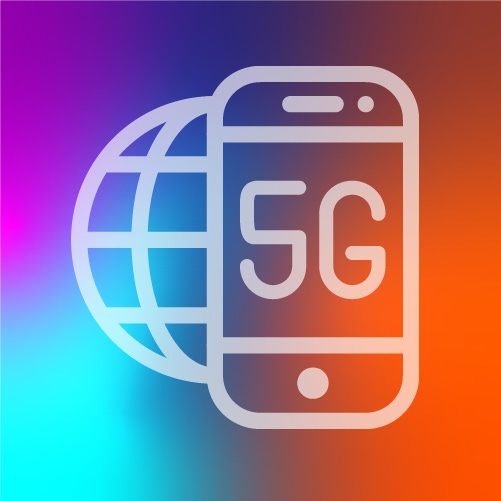Some of the biggest tech companies in the world appear to be preparing to fight each other in the market for augmented and virtual reality headsets. 5G providers likely are likely cheering on the sidelines.

Three of the biggest tech companies in the world are either actively developing augmented reality (AR) and virtual reality (VR) headsets, or are reportedly in the process of preparing to do so. Those efforts may eventually use the speedy 5G networks that companies like Verizon, AT&T and T-Mobile are building and constantly advertising.
The actions by companies like Google, Apple and Meta could portend a big technology platform battle beyond smartphones. It's still early days, but for 5G network operators, the developing trend could lead to new categories of portable, wearable devices that would use a lot of 5G connectivity.
Google goggles
For example, as reported by Ars Technica, Google may be preparing to develop a new AR platform and device based on its recent acquisitions, hires and job postings. Such a move would essentially represent a second try by a company that received widespread scorn over the release of its Google Glass headset almost a decade ago.
According to the report, Google acquired Canadian smart glasses maker North in 2020. More recently, the company hired Mark Lucovsky, who previously headed up mixed reality operating system work for Meta (formerly Facebook) "My role is to lead the Operating System team for Augmented Reality at Google," he wrote on LinkedIn.
Google has recently posted a number of job openings that hint at mass market AR and VR ambitions. One listing suggests applicants would be working on an "innovative AR device." Another says Google is "focused on making immersive computing accessible to billions of people through mobile devices."
Apple seeds a market
But Google isn't alone in staffing up in the area. According to a new report in Bloomberg, Apple recently hired the head of Meta's augmented reality communications, Andrea Schubert. The move represents Apple's efforts to "get its ducks in a row" ahead of its expected launch of an AR/VR headset in 2022.
However, some reports indicate Apple's initial headset launch next year won't be a major, mass market consumer device but instead a high-end, expensive way for the company to begin seeding the market among developers for AR/VR content and services.
Such efforts by Google and Apple would follow in the lead of Meta, which already operates a substantial business around its Oculus VR headsets.
The extreme computing and display requirements of a full-blown VR experience – coupled with the need for such headsets to be light and comfortable – likely will keep them squarely in the wired or Wi-Fi world initially. After all, the inclusion of 4G and 5G technologies often increases devices' processing requirements and lowers their battery life.
But that isn't stopping some network operators from investing in what might be a whole new class of revenue-generating gadgets. For example, Verizon this week announced an agreement with smart glasses maker Vuzix "to leverage the power of Verizon's 5G and edge computing technologies to deliver a first-of-its-kind augmented reality experience for sports and gaming."
Figure 1: 
Vuzix is working with Verizon on smart glasses that leverage 5G and edge computing.
(Source: Vuzix)
The companies said they plan to show off the results of their efforts at the upcoming CES trade show in Las Vegas.
Verizon and Vuzix have been working together for years. But their newest press release yet again underscores operators' general interest in the opportunity around wearables.
For example, T-Mobile's network chief Neville Ray has often discussed his hopes that AR/VR headsets will usher in a new age of growth for 5G providers. "The world around you is going to be brought to you through great AR and VR experiences," he said recently of such devices. "There is just an enormous opportunity."
Related posts:
— Mike Dano, Editorial Director, 5G & Mobile Strategies, Light Reading | @mikeddano
About the Author(s)
You May Also Like











